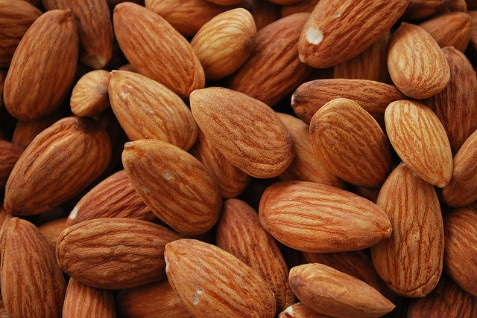While at work, when hunger pangs strike, it is easy and tempting to reach out for either a sinful, calorie-laden sweet or cholesterol-rich deep fried snack. These hard-to-resist nibbles are available everywhere, your building cafes, neighbourhood shops, vending machines and even in office canteens.
Snacking isn’t “bad” if you do it in moderation and make the right choices. Tasty, good-for-you snacks can be a part of a healthy diet – which you need to do to have a good heartful life.
To snack the sensible way, choose these nutrients-rich snacks, especially those which do good for your heart.
Here are some snacks which are delicious, energising, full of healthy nutrients and are sure to make your heart sing a healthy song.
Keep this list handy. They are a good mix of nutrition and taste.
- Nuts
- Yogurt with fruit
- Apples and peanut butter
- Oatmeal
- Edamame
- Crudites
- Smoothies, Fro-yo, Parfait
Another extremely useful thing to remember is the website www.heartattackhelp.org.au. It has a nifty map-based tool which helps you to locate the nearest defibrillator or a hospital in case a heart emergency strikes.
Nuts
Nuts are a heart-healthy snacking choice. Nuts, which contain unsaturated fatty acids and other nutrients, are a great snack food, too. They’re inexpensive, easy to store and easy to pack when you’re on the go.
People who eat nuts as part of a heart-healthy diet can lower the low-density lipoprotein (LDL, or “bad”) cholesterol level in their blood. High LDL is one of the primary causes of heart disease.
Eating nuts may reduce your risk of developing blood clots that can cause a fatal heart attack. Nuts also appear to improve the health of the lining of your arteries.
As much as 80 percent of a nut is fat. Even though most of this fat is healthy fat, it’s still a lot of calories. That’s why you should eat nuts in moderation. Ideally, you should use nuts as a substitute for saturated fats, such as those found in meats, eggs and dairy products.
Instead of eating unhealthy saturated fats, try substituting a handful of nuts or a tablespoon or two of a nut spread. The American Heart Association recommends eating four servings of unsalted nuts a week. Select raw or dry-roasted nuts rather than those cooked in oil.
Yogurt
A yogurt a day may keep heart disease away. According to a study reported in the Globe and Mail, the probiotic bacteria in curd reduced the plaque build-up on the walls of arteries. The thicker the plaque build-up, the lesser space there is for blood to move through.
This plaque build-up is what causes stroke, heart attack and death from heart disease.
The healthiest yogurt has no refined sugar added to it.
Add a healthy serving of berries on top. Not only do they add to the taste, but berries contain antioxidants which are known to reduce blood pressure and dilate blood vessels. A study found that women who ate a minimum of three servings of berries a week had a 32% percent lower risk of heart attack than those who ate lesser.
So go ahead, pile on those blueberries and strawberries.
Apples with peanut butter
Apples do indeed keep the doctor away, at least the heart doctor. That is what studies are showing.
The reason for this is that apples contain compounds known as phytonutrients or phytochemicals. These act as antioxidants against the bad cholesterol – LDL (low-density lipoproteins).
High-density lipoprotein (HDL) transfers cholesterol away from your body and is therefore considered good. LDL transfers cholesterol throughout your body and into your cells and is therefore considered bad.
A higher level of LDL implies more cholesterol in your bodies. Cholesterol contributes to the obstruction and hardening of blood vessels which can eventually lead to coronary heart disease, stroke etc.
The process of oxidation is mechanism your body uses to transfer cholesterol throughout the body into harmful plaque which deposits on the arterial walls and causes blockages. Antioxidants in apples help to fight and control this harmful process.
Add a dollop of yummy healthy natural peanut butter and you have your perfect snack.
Oatmeal
If you currently have or are trying to prevent heart disease, there is no better way to start the day than with a bowl of freshly cooked oatmeal.
Many a study have shown that eating just one bowl of oatmeal every day can reduce cholesterol by up to 23%. Given that every percentage point reduction in cholesterol levels implies a 2% point decrease in the risk of developing heart disease, this is pretty significant.
Oats, via their high fibre content, remove cholesterol from the digestive system and prevent it from building up in the bloodstream and ending up as plaque in the arteries.
Oats contain antioxidants too, which slow down the time it takes the LDL to become oxidised and hence aid in preventing the building up of plaque in the arteries.
Edamame
Edamame is simply soybeans which have been harvested while they are still tender and green. They can be eaten either shelled as beans or in the pods.
Edamame is an excellent source of protein and a healthier alternative to animal protein as it contains relatively lower levels of the bad LDL, which in turn lowers the risk of atherosclerosis or the building up of plaque. The Food and Drug Administration recommends eating 25 grams of soy protein every day as a part of a diet low in saturated fat and protein.
Soybeans also contain the essential Omega-3 fatty acids, which are believed to reduce the risk of coronary heart disease. In fact, soybeans are one of the best non-fish sources of Omega-3.
Crudites with hummus
Vegetables contain high levels of vitamins, minerals and other nutrients that can strengthen and protect your heart.
Bell peppers contain folate, a nutrient that can reduce homocysteine, a form of amino acid that is linked to heart disease. Carrots are rich in carotenoid, which is a powerful antioxidant. Tomatoes contain lycopene which has been known to be effective in reducing the risk of heart disease.
Serve these vegetables with a bowl of hummus. Hummus is made of protein-rich garbanzo beans which have been proven to reduce cholesterol levels. In a study done by Jane Pittaway at the University of Tasmania’s School of Human Life Sciences, a group of people on a chickpea diet had reduced cholesterol levels compared to another set of people who got their daily fibre intake from wheat products.
Smoothies, Fro-yo and Parfait
Combine some of the above ingredients in tasty ways to make an altogether different tasty and yummy snack. With some yogurt, fruits, nuts and oats make a delicious parfait. Freeze the yogurt with some berries for your very own fro-yo or churn the berries with some milk, add a few crunchy nuts to make a lip-smacking smoothie.
Here’s wishing you some happy snacking days in office. However, for that emergency do keep a portable defibrillator handy at your workplace. The easiest way is to rent one. Just call Alsco to find out how convenient it is to keep, use and maintain.








